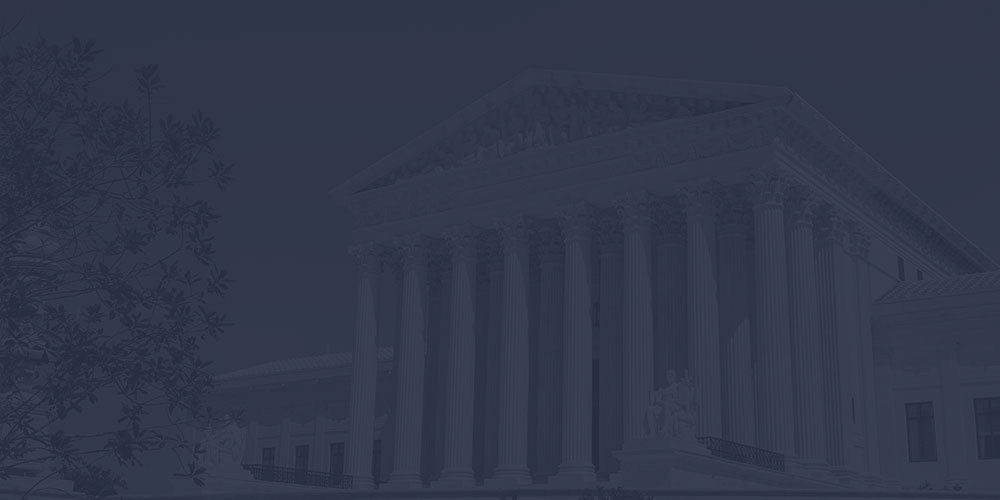Cook County, Illinois Judge Rules Illinois Prejudgment Interest Statute Unconstitutional
On May 27, 2022, the Cook County Circuit Court ruled that Illinois’ newly passed six percent prejudgment interest Amendment to 735 ILCS 5/2-1303 violates the Illinois Constitution in Hyland v. Advocate Health and Hospitals Corporation, et al. (Case No. 2017-L-003541) (Cook County, Ill.).
The Amendment to 735 ILCS 5/2-1303 changed the time that interest can begin to accrue on a judgment. Before the amendment, interest could only accrue from the date of judgment. After the amendment, interest begins to accrue at the time of initiating all actions seeking damages for personal injury or wrongful death caused by negligence, willful and wanton misconduct, intentional conduct, or strict liability.
Hyland v. Advocate Health and Hospitals Corporation arose out of a medical negligence matter in which preterm births of twins at Advocate Good Samaritan Hospital, and only one child survived. Plaintiff in Hyland alleges that the preterm labor and births were caused by negligently administered medication because the Defendant doctors negligently prescribed medication the mother was allergic to, failed to discontinue medication, and failed to monitor and respond to symptoms of an allergic reaction. While this case was pending, Senate Bill 0072 was passed and signed into law, amending 735 ILCS 5/2-1303. Shortly after, Defendant Katherine Nolan Watson, M.D. filed a motion to declare the Senate Bill unconstitutional under the Illinois Constitution. Defendant Watson argued that the Amendment violated multiple Illinois Constitutional Provisions, including: (1) the right to a jury trial; (2) the prohibition against special legislation; (3) separation of powers principles; (4) the read three times requirement; (5) and the single-issue requirement.
The court ruled that the Amendment did violate the Illinois Constitutional right of trial by jury as protected by Article 1, § 13 of the Illinois Constitution of 1970. §13 provides that “the right of trial by jury as heretofore enjoyed shall remain inviolate,” and further asserts that this language has been interpreted to secure the right of jury trial as it existed at common law. Kakos v. Butler, 2016 IL 120377. Defendants argued that it is the jury’s right and duty to access damages to compensate a Plaintiff, thus the Amendment violates this fundamental right because it improperly strips the function and role of jury in accessing all issues, including damages. Defendants further argued that “since prejudgment interest is designed to make the Plaintiff whole…the time period between the injury and a finding of liability is already subsumed into the jury’s determination of damages as the assessment of damages is the preeminent function of the jury.” Hyland. The court discussed in detail an article titled “A Primer on Prejudgment Interest” by Michael S. Kroll, which illustrated that Illinois juries, specifically those in Cook County, are already awarding interest for the time period between injury and trial as part of damages. The Court found Defendants’ argument well taken and ruled the Amendment violates Article I §13 of the Illinois Constitution.
The Court also found that the Amendment violates the Illinois Constitution’s prohibition against special legislation. Under the Illinois Constitution, the General Assembly shall pass no special or local law when a general law is or can be made applicable. Whether a general law is or can be made applicable shall be a matter for judicial determination. Ill. Const. 1970, Art. IV, §13. The Court noted that this clause also prohibits the General Assembly from conferring a special benefit or privilege upon one person or group excluding others that are similarly situated. Best v. Taylor Machine Works, 179 Ill. 2d 367 (1997).
The Court applied the strict scrutiny test to determine whether the Amendment was enacted to permit an injured party to be made whole for their injury from the date of the occurrence until judgment is entered. The requirement that prejudgment interest be added to the jury’s award prevents the jury from considering facts as to the reasonableness of just compensation. The Court determined that automatically adding prejudgment interest when the verdict exceeds a time-limited offer removed the litigant’s right to have damages decided by a jury, thus does not pass the strict scrutiny test and is unconstitutional.
The Court further applied the rational basis test and stated that the Amendment did not satisfy the rational basis test. The Court reasoned that this Amendment penalized Defendants regardless of whether they contributed to any delay and may allow a non-diligent Plaintiff the ability to reap the benefits of prejudgment interest even if it is the Plaintiff who “dragged their feet” in the litigation. Moreover, the Court noted that unlike prejudgment interest statutes in other states, the Illinois Amendment provides “no vehicle in which to measure which party may be at fault for any delay which may have occurred.” The Court also held that this Amendment divides tort parties into two groups: parties to personal injury and wrongful death actions who are subject to prejudgment interest, and all other tort parties who are not, clearly and arbitrarily favoring personal injury and wrongful death Plaintiffs. Therefore, because not all tort parties are treated equal and this Amendment is not rationally related to any State interest, it was ruled unconstitutional.
The Court did not discuss the other claims raised by Defendants because it concluded that the Amendment was unconstitutional and invalid based on the right of trial by jury and the prohibition against special legislation.
It is important to note that the Court’s decision does not apply statewide as it is a trial-level decision and the Plaintiff in this case has the right to a direct appeal. However, as the case must proceed to trial before there is an appeal, it remains undetermined when the Supreme Court would hear any potential appeal. In the meantime, Defendants in Illinois personal injury or wrongful death actions should file an Affirmative Defense citing to the unconstitutionality of the Prejudgment Interest Statute.
Article written by Associate Attorney Jaylen Henderson | Gausnell, O’Keefe & Thomas, LLC



